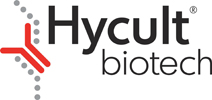
Hycult Biotech/C1q, Mouse, mAb JL-1, FITC/HM1096F/100 µg
商品编号:
HM1096F
品牌:
hycultbiotech
市场价:
¥10320.00
美元价:
6192.00
产品分类:
单克隆抗体
公司分类:
monoclonal_antibody
联系Q Q:
3392242852
电话号码:
4000-520-616
电子邮箱:
info@ebiomall.com
商品介绍
Description: C1q, Mouse, mAb JL-1, FITC
The monoclonal antibody JL-1 recognizes the collagen-like region (CLR) of mouse C1q, a 459 kDa molecule consisting of three individual polypeptide chains. The antibody has been generated by immunization of C1q-/- C57BL/6 mice with purified mouse C1q.
C1q forms together with C1r and C1s the C1 macromolecule, the first component of the classical complement pathway. Interaction of immune complexes with C1q induces a conformational change within the C1 complex, which results in activation of the classical pathway. C1q functions as recognition unit by binding to the heavy chain of IgG or IgM (Fc gamma and Fc micro) provided that the immunoglobulins are bound to their antigen. Furthermore, C1q can also recognize molecular patterns associated with pathogens and it can bind to apoptotic blebs, where it activates the classical complement pathway and mediates phagocytosis. As such, C1q promotes the clearance of apoptotic cells and subsequent exposure of auto antigens, thereby preventing stimulation of the immune system.
C1q is predominantly produced by macrophages but also by follicular dendritic cells, interdigitating cells and cells of the monocyte-macrophage lineage. C1q deficiency has a profound effect on host defence and clearance of immune complexes. Absence of C1q may cause autoimmunity by impairment of the clearance of apoptotic cells. Inherited C1q deficiency is also associated with the development of systemic lupus erythematosus (SLE).
The monoclonal antibody JL-1 is reactive with the collagen-like region (CLR) only, which is the same region to which autoantibodies in mice and humans are binding. Anti-C1q autoantibodies deposit in glomeruli together with C1q but induce overt renal disease only in the context of glomerular immune complex disease. This provides an explanation why anti-C1q antibodies are especially pathogenic in patients with SLE.
C1q forms together with C1r and C1s the C1 macromolecule, the first component of the classical complement pathway. Interaction of immune complexes with C1q induces a conformational change within the C1 complex, which results in activation of the classical pathway. C1q functions as recognition unit by binding to the heavy chain of IgG or IgM (Fc gamma and Fc micro) provided that the immunoglobulins are bound to their antigen. Furthermore, C1q can also recognize molecular patterns associated with pathogens and it can bind to apoptotic blebs, where it activates the classical complement pathway and mediates phagocytosis. As such, C1q promotes the clearance of apoptotic cells and subsequent exposure of auto antigens, thereby preventing stimulation of the immune system.
C1q is predominantly produced by macrophages but also by follicular dendritic cells, interdigitating cells and cells of the monocyte-macrophage lineage. C1q deficiency has a profound effect on host defence and clearance of immune complexes. Absence of C1q may cause autoimmunity by impairment of the clearance of apoptotic cells. Inherited C1q deficiency is also associated with the development of systemic lupus erythematosus (SLE).
The monoclonal antibody JL-1 is reactive with the collagen-like region (CLR) only, which is the same region to which autoantibodies in mice and humans are binding. Anti-C1q autoantibodies deposit in glomeruli together with C1q but induce overt renal disease only in the context of glomerular immune complex disease. This provides an explanation why anti-C1q antibodies are especially pathogenic in patients with SLE.
Specifications:
| Catalog number | HM1096F |
|---|---|
| Product type | Monoclonal antibodies |
| Quantity | 100 µg |
| Formulation | 1 ml (100 μg/ml) 0.2 μm filtered protein G purified FITC conjugated antibody solution in PBS, containing 1.0% bovine serum albumin and 0.02% sodium azide. |
| Conjugate | FITC |
| Application | Frozen sections, Functional studies, Immuno assays, Immuno fluorescence, Western blot |
| Application Notes | IHC-F: Antibody JL-1 was used to stain tissue sections which were fixed in acetone. As positive control a polyclonal anti-C1q antibody was used and as negative control an isotype matched monoclonal antibody (Ref.1). FS: Antibody JL-1 was administered to mice resulting in depletion of circulating C1q, glomerular deposition of C1q and induction of anti-C1q autoantibodies in susceptible mice. As a negative control an isotype matched monoclonal antibody was used (Ref.1). |
| Use | Dilutions to be used depend on detection system applied. It is recommended that users test the reagent and determine their own optimal dilutions. The typical starting working dilution is 1:50. |
| Immunogen | Purified mouse C1q |
| Isotype | Mouse IgG2b |
| Species | Mouse |
| Cross reactivity | Human - Yes, Rat - Yes |
| Alias | Complement component C1q, Complement C1q subcomponent subunit A |
| Positive Control | Spleen and kidney tissue of wild-type mice (Ref.1) |
| Negative Control | Spleen and kidney tissue of C1q -/- mice (Ref.1) |
| References | 1. Trouw, L et al; Anti-C1q autoantibodies deposit in glomeruli but are only pathogenic in combination with glomerular C1q-containing immune complexes. J Clin Invest 2004, 114: 679 2. Li, M et al; Development of a humanized C1q A chain knock-in mouse: assessment of antibody independent beta-amyloid induced complement activation. Mol Immunol 2008, 45: 3244 3. Erlich, P et al; Complement protein C1q forms a complex with cytotoxic prion protein oligomers. J Biol Chem 2010, 285: 19267 |
| Storage and stability | Product should be stored at 4 °C. Under recommended storage conditions, product is stable for one year. |
| Precautions | For research use only. Not for use in or on humans or animals or for diagnostics. It is the responsibility of the user to comply with all local/state and Federal rules in the use of this product. Hycult Biotech is not responsible for any patent infringements that might result with the use or derivation of this product. |
| Disease | Nephrology, Neurological disorders |
品牌介绍
荷兰HyCult Biotechnology(HBT)位于荷兰乌登,从1994开始制造检测抗体和蛋白质,主要侧重与病理学诊断有关的全套产品研发,既有纯化的重组蛋白和多肽,也有单抗和多抗,是世界一流的先天免疫领域的研究试剂制造商。
联络我们



